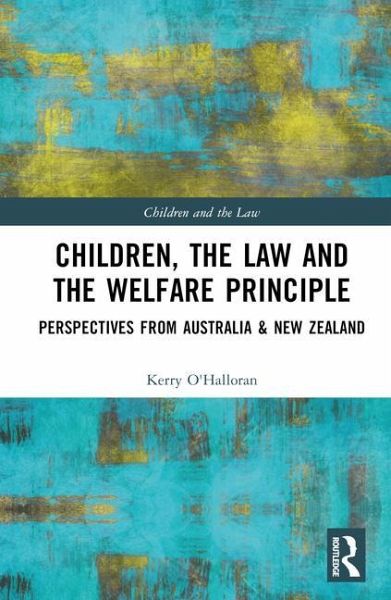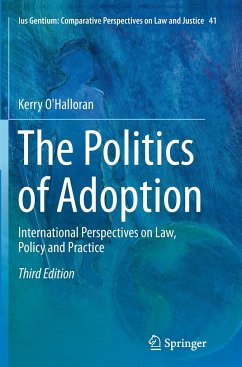
Children, the Law and the Welfare Principle
Perspectives from Australia & New Zealand

PAYBACK Punkte
86 °P sammeln!
This book contrasts and compares the different application of the law relating to the welfare interests of children in Australia and New Zealand including, respectively, the Indigenous and Maori children of those countries. It does so by applying the same matrix of indicators to explore jurisdictional differences between welfare interests and rights in the contexts of public family law (civil - care and protection etc and criminal - youth justice etc); private family law (matrimonial, adoption etc); and hybrid public/private family law (wardship, adoption from state care etc). By profiling the...
This book contrasts and compares the different application of the law relating to the welfare interests of children in Australia and New Zealand including, respectively, the Indigenous and Maori children of those countries. It does so by applying the same matrix of indicators to explore jurisdictional differences between welfare interests and rights in the contexts of public family law (civil - care and protection etc and criminal - youth justice etc); private family law (matrimonial, adoption etc); and hybrid public/private family law (wardship, adoption from state care etc). By profiling the nations in accordance with the same indicators it reveals important jurisdictional differences in the extent to which welfare interests or rights determine how the law is currently applied to children in Australia and New Zealand.














